[Full disclaimer: The reporter for this story, Christian Ayers, works part time for a local food truck. The truck is not featured in any images or referenced in the article.]
It takes a lot to run a kitchen, especially when it’s rolling on a 15,000 pound truck. Food trucks are essentially restaurants on wheels, and after serving hungry customers at various locales each day, it takes a lot to restock, clean up, and recuperate before and after every service. Many local food truckies take solace at commissaries like Food Truck City (FTC) to stock and store their trucks.
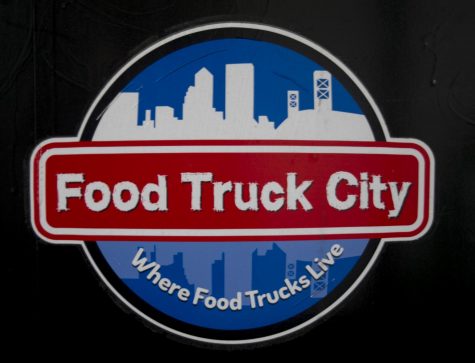
Food Truck City offers many services to accommodate truck and cart owners, including parking bays, propane fueling, ice, private storage with electricity, truck wash areas, grey water and grease disposal, and a licensed commissary, all inside a gated area with 24-hour camera security. Food truckies with private storage at FTC utilize the space to prep their mobile kitchens for service. They’ll often have commercial fridges and kitchen prep tools like meat slicers in their storage units, giving them full access to whatever food prep needs they might encounter.
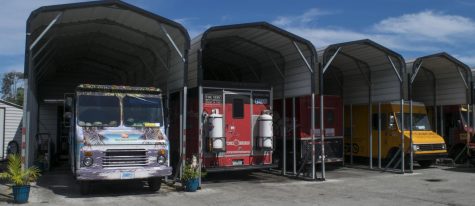
Bruce Scott is the manager at FTC, and has worked at the commissary since owner Bob Fleckenstein opened it in 2016.
“All these guys that had these trucks were having to keep them where they park boats and park RV’s. They’re not really for food trucks,” Scott said. “That’s where Bob Fleckenstein, the brains, came out and said, you know, they need a place. And Bob had the money and the connections and everything to get it started.”
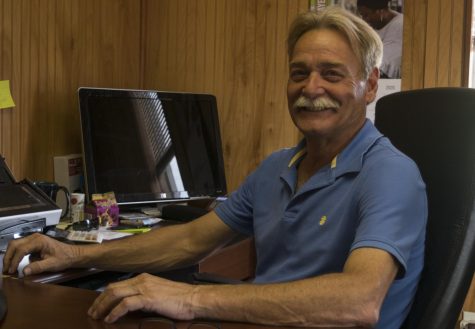
States like Florida require food truck operators to store their vehicles at a commissary, unless the truck is self-sufficient. The primary reason for this regulation is that food trucks need a place to dispose of their grey water, dirty runoff water used during service. Owners who don’t use places like FTC typically take their trucks to standard storage facilities or RV storage units, but to have a dedicated location to serve their trucks’ needs is ideal for the truckies at FTC. FTC is also a prime location for truckies to have their trucks reviewed by city health inspectors.
FTC is located just a mile from Restaurant Depot, a massive market that caters specifically to restaurant owners and operators. They’re also stationed very close to Interstate 95, providing a simple route for drivers to commandeer their often massive food trucks to their destinations. This is a huge boon for the truckies, providing a seamless route to maintain stock and reach their service areas of operation.
While food trucks typically vie for prime service operation spots and are natural competition to each other, the truckie community that uses FTC’s facilities and amenities are like family according to Scott.
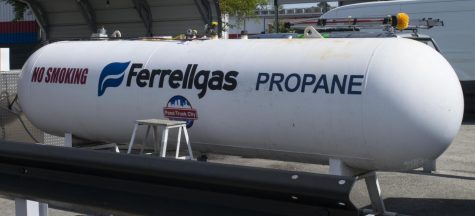
“They all realize, we’re all in it together,” Scott said. “I had one truck move in here one time, I asked her, ‘You ain’t from around here, are you?’. She looked at me and she goes, ‘so how cutthroat is it around here?’ and I said, ‘Darling, it’s not cutthroat around here. If you need help, just ask anybody and they’re going to help you.’”
That sentiment rang true even during the interview with Scott. He fielded a call with an old food truckie that used to rent space at FTC, who asked about what he needed to do during an upcoming inspection. Scott allowed the truckie to use the facility for the inspection and gave him tips on what to expect. Inspections are commonplace at FTC, and the city health inspectors now know the commissary very well, according to Scott.
In addition to the 52 trucks that currently rent space at FTC, Scott said an additional 30 trucks come just to refuel on water and dispose of their used grey water. The needs of the truckies were initially fulfilled by ear when FTC first opened. Truckies expressed their needs to Scott and he does what he can to take care of those needs. Washing dishes at FTC’s dish pit is perhaps the most utilized service, and is a major factor in truckies renting the space. Most of the trucks come right back to FTC after serving their food, and the first thing they do is take their dishes to the pit.
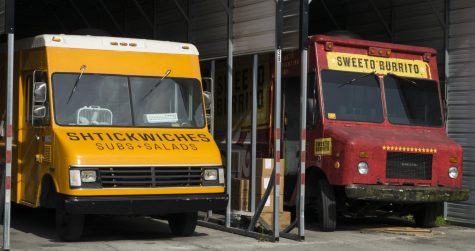
“If you’re going to be in the food truck business, I think you need a place like this,” Scott said. “I would’ve never started one without being in a place like this, I just wouldn’t.”
Food Truck City is really the only place in Jacksonville to cater to the particular needs of food truckies. Sure there are RV parks and storage units that truckies use to take care of basic needs, but FTC is truly an all-in-one solution for truckies and it provides a community that supports each other in an otherwise competitive industry. After all, FTC’s motto is “Where Food Trucks Live.”
—
For more information or news tips, or if you see an error in this story or have any compliments or concerns, contact editor@unfspinnaker.com.















